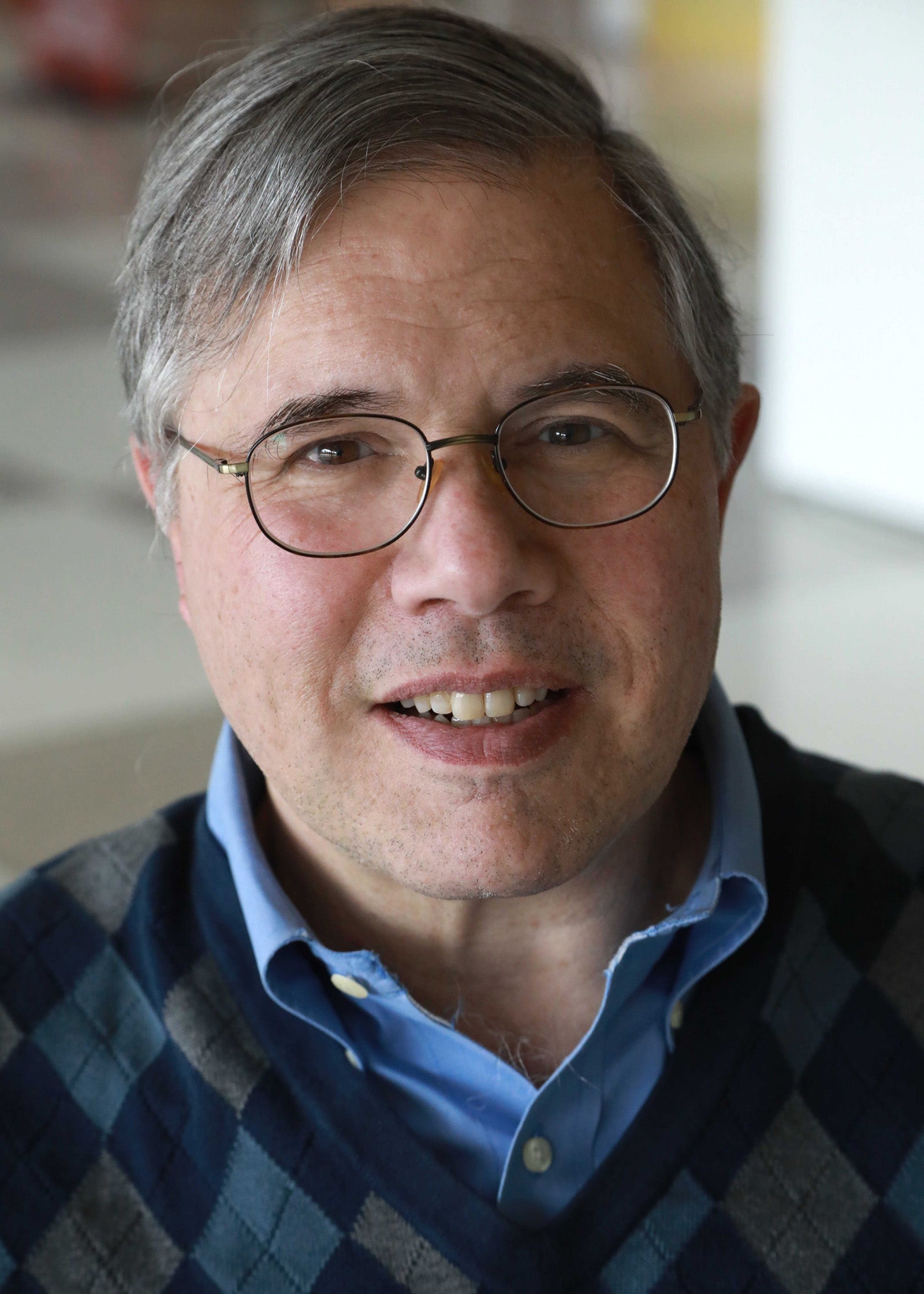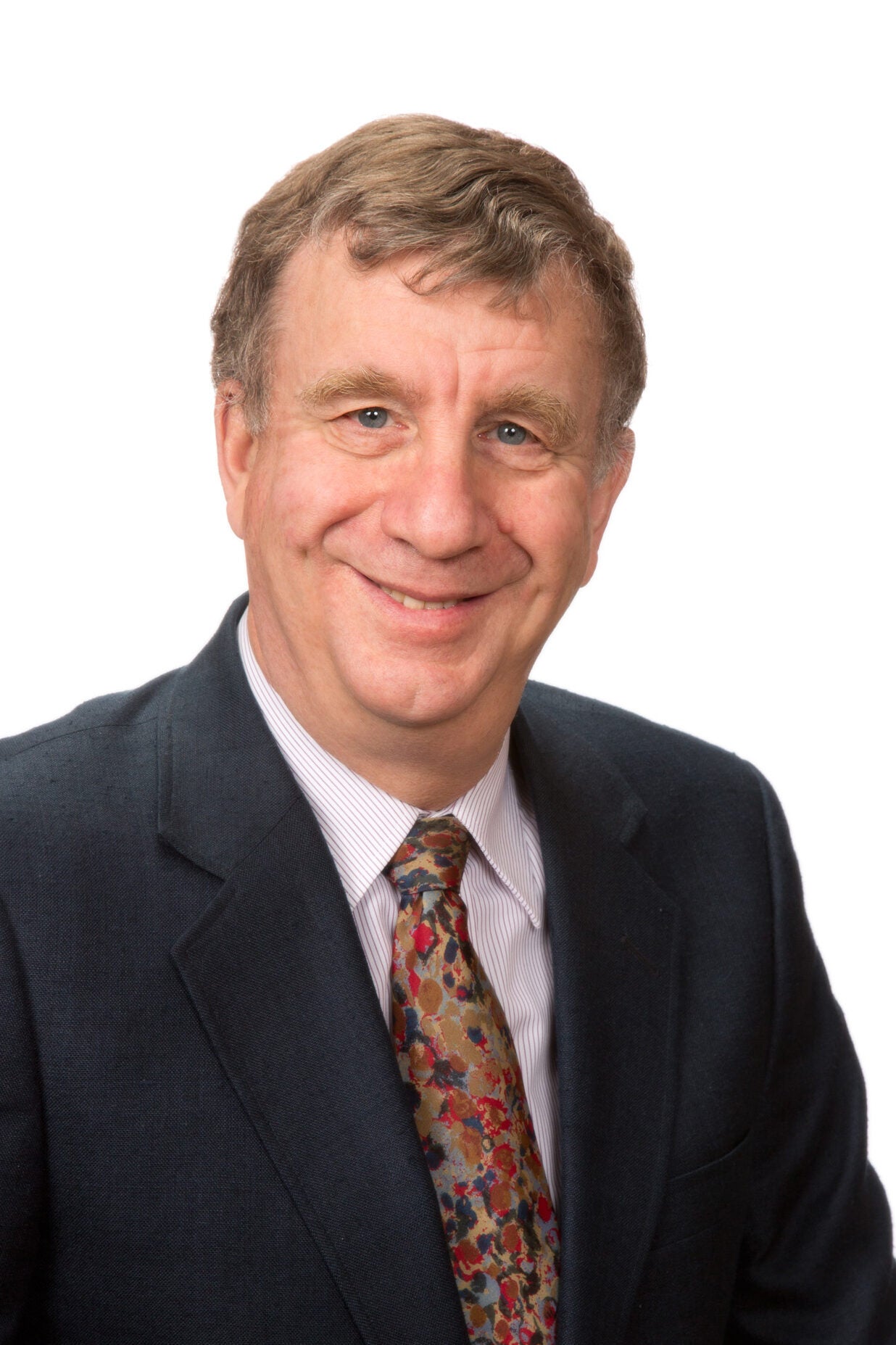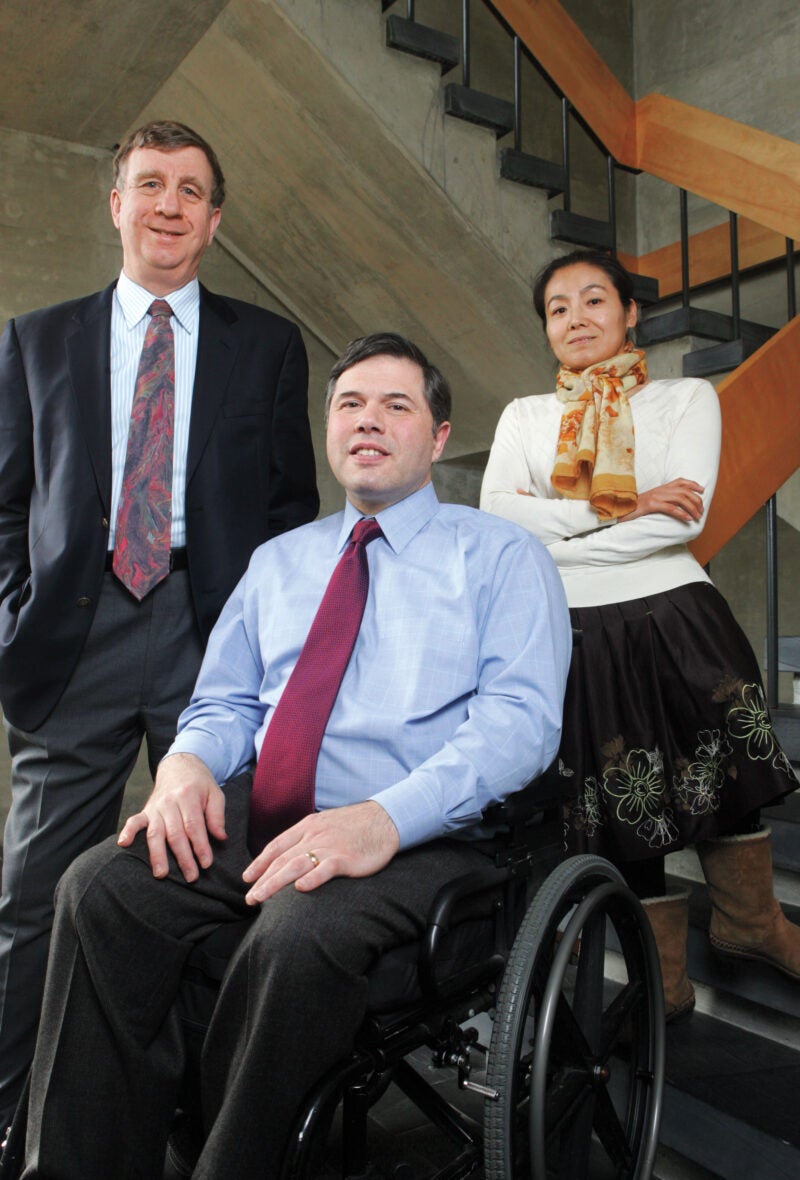When Harvard Law School faculty members Bill Alford ’77 and Michael Stein ’88 founded the Harvard Law School Project on Disability, known as HPOD, some 20 years ago, they envisioned it fostering the dignity of persons with disabilities through cutting-edge scholarship and teaching that could inform policy work which, in turn, could enrich their academic endeavor. It has been all that and more, producing innovative cross-disciplinary scholarship, pioneering new classroom subject matter at Harvard and across the globe, and advancing novel policy proposals and pro bono advocacy at the international, national and local levels. Throughout, it has worked collaboratively with persons with disabilities, learning from them and helping to empower them in making their voices heard.
Harvard Law Today met with Stein (a leading expert on disability law and policy) and Alford (a leading expert on Chinese law who served for 18 years on the board of Special Olympics International, including nine as its lead director) for a conversation about the ethos and evolution of HPOD, its focus on issues such as the particular impact of climate change on people with disabilities, and the inspiration they draw from the people within the disability community with whom they’re priviliged to work.
Harvard Law Today: What was the impetus to start the Project on Disability back in 2004?

Michael Stein: Martha Minow was our matchmaker. Bill was doing marvelous work at Special Olympics International (which serves persons with intellectual and developmental disabilities), and I was doing what I could during the negotiations of the convention on the Rights of Persons with Disabilities. And Martha generously thought, “What an opportunity for two people with similar interests and similar senses of humor to educate each other and work together.” That’s how we began.
William Alford: Michael has a much better sense of humor, and as usual, he is being very modest. He is the leading scholar anywhere on the international and comparative dimensions of disability and, indeed, disability law generally.
HLT: Michael, can you say a little more about how you got involved with the Convention on the Rights of Persons with Disabilities and how it has been relevant to your work?
Stein: I was brought into the negotiations by Gerard Quinn S.J.D. ’86, with whom I overlapped while at law school. It was an opportunity to get involved early in the process and to remain involved. Since the convention’s adoption in December 2006, we at HPOD have worked in 44 or so countries on the ground — and in a bunch of others virtually — in thinking about policy and implementation and about how to best enable members of civil society to raise their own voices.
HLT: How has the project’s focus evolved over the years?

Alford: One constant is that we are very grateful for our position here. I feel that we distinguish ourselves from other strong programs that deal with issues of disability by using the good fortune of this academic perch to bring to bear what we learn from our writing and teaching to the actual work on the ground. Then we bring what we learn on the ground back to inform future writing and teaching. It’s also an iterative process in the sense that we both believe that in this work you have to be cognizant of differing legal and cultural environments. As Michael has stressed from the beginning, we work collaboratively with persons with disabilities and disabled peoples’ organizations in whichever country we’re in. But it’s also iterative in that we learn something in one country that we then bring to other nations —and to our writing and teaching.
I think the heart of what we do remains constant, but some of our endeavor has changed. Initially, between the convention itself being international and my focus on China and other parts of Asia, a lot of our efforts were outside of the U.S. Over the past ten years or so — without diminishing the international work — we have been expanding our domestic work, doing a lot in Massachusetts and New York in particular. That’s one sizable development. Another is Michael’s prescient work on a range of issues, including the pertinence of major technological changes for persons with disabilities, and also the particular dilemmas climate change poses for many persons with disabilities, some of whom, for instance, face accessibilty issues in evacuating from climate disasters.
Stein: Our ethics have never changed. We feel we need to serve communities with humility and to respond to their requests rather than arrive with a fixed agenda. We come to serve and to assist. That has never changed.
On the geography, Bill is correct. His years with the Special Olympics attuned him very much to persons with intellectual and developmental disabilities. I have always been drawn to this cause as well. The late Judy Heumann (an iconic American disability rights activist who served in the Clinton and Obama administrations and also at the World Bank) used to praise HPOD because, she said, “It’s so good to see someone with a visible physical disability focusing on other groups.” Frankly, it’s more challenging and also more rewarding. Putting in a ramp is a fairly simple solution. Rendering a dense but important text or training exercise into easy to read and understand language is typically more complex.
Our scope has never changed. We see areas where disability is relevant but not acknowledged, including climate change, where 1.3 billion people with disabilities are nearly forgotten in terms of nationally determined contributions under the Paris Agreement. They also have not been recognized as a constituency at the U.N. Climate Change Conference, so they cannot participate in negotiations. We have focused on disability-related climate justice and raised awareness, leveraging our abilities as academics. We are publishing widely, including not only in law reviews but journals in other fields such as The Lancet and Nature. We have spoken at and convened workshops, including most recently a webinar with the Petrie-Flom Center that focused on climate change and mental health, and have participated at high profile events such as the 2024 G7 Ministerial Meeting. We’ve produced the only handbook we know of for people with disabilities on climate change. In doing so, we have leveraged our academic knowledge and thinking into positioning people with disabilities to claim their rights.
Alford: What I said about our iterative approach certainly applies when it comes to our work regarding intellectual disability. So, it’s not just work about, it’s work with persons with intellectual disabilities. A few years ago, the Harvard Law Review invited Michael and me to write on the anniversary of the Americans with Disabilities Act for its blog, and we thought, “Wouldn’t it be appropriate as well as empowering, instead of writing about people, to have them participate?” Together with two colleagues with disabilities, one of whom, Anne Fracht, we later hired for our program, another HPOD colleague, Hezzy Smith, and I wrote the first piece for an American law review which was concurrently published in an easy-to-read version that is accessible to readers with intellectual disabilities. Anne and our other friend’s life experiences were different from my own and so, writing with them, was a terrific learning experience and produced a richer piece than had they not been co-authors. The same is true for other collaborative research we’ve engaged in with self-advocates, for example, on relating their experiences of living in group homes during COVID-19.
In that vein, Michael and I have always sought to bring persons with an intellectual disability to speak in our classes. I should also note that our colleague, Hezzy, two years ago introduced a one-credit reading group on legal issues affecting persons with an intellectual disability, including issues of legal representation, which I believe is the first such class to be taught in this country, and which will be offered again this coming academic year.
HLT: I have heard you speak about your work with self-advocates. Can you say a little more about that?
Stein: The phrase is intended to reflect individuals with disabilities who want to and do learn about their rights and then advocate for themselves and their peers. Peer-to-peer support and advocacy across the board on disability issues and disability types is often the most effective means of going forward. Anne, who is now HPOD’s Self Advocacy Associate thanks to support from the Samuel Center for Social Connectedness, has almost four decades of experience in Massachusetts. Together, we teach people about their rights. They decide what they want to pursue or not pursue, and we help enable them to speak for themselves. It’s not one-size fits-all, even within the realm of supported decision-making, which is intended to provide an alternative to ceding full authority over one’s life to a legal guardian. Here in the U.S. there are differences among the 21 states that have adopted supported decision-making statutes. By providing self-advocates with ways to be involved in developing their own supported decision-making, as a possible alternative to ceding all decision making to a guardian, we assist them in coming up with their own workable solutions to what they want for their lives. That’s an incredibly rewarding experience.
HLT: What else are you working on?
Alford: We’re still doing a lot internationally and connecting at even higher levels than before. Michael, for example, is regularly to advise major multilateral intergovernmental institutions and senior officials in different countries, and in 2023, I was asked by the president of Korea to spend 10 days there meeting with senior officials, educators and lawyers with respect to disability issues. This and all of our other work is done on a pro bono basis. But at the same time, I think it’s important substantively, and I think emotionally, to be doing things that are tangible, where we see the actual fruits of our work with people. One of the good things about self-advocacy is that people get to define for themselves what they want. Now, we’re not providing legal advice, we’re not a clinic. What we’re trying to do, whether it’s here in the U.S. or, for that matter, in China, is to help people sharpen their capacity to explain themselves and what they need as they deal with community officials, educators, and others.
Stein: A related focus for us is parent support groups — parents whose children (who are sometimes adults) are in need of support, and who may not always be able to express their will and preferences. These parents are extraordinarily powerful advocates for their children. I often say in class that the best ally is a pissed-off mother. A majority of the parents in these support groups are mothers, even as we try to encourage fuller participation by other family members. They never forget their children, so there’s no letting up. They’re wonderful, powerful advocates, and they do that by being empowered to learn about their rights and to choose what outcomes to seek given their legal and cultural environments. There are some parts of the world where conversations directly with officials or others is the best way to proceed, and other parts of the world where indirect action is more efficacious. Ultimately the decision on how best to advocate belongs to persons with disabilities and their supporters.
HLT: How do parent groups and individual countries reach out to you?
Stein: All our work, whether international or local, is based on relationships and trust. We work with groups that we’ve known for some time and that know us. We trust their ethics, they trust ours. Sometimes the connections are serendipitous, but we never work anywhere unless we are invited to work, and we do not dictate any approach.
Alford: For example, in China, we have a longstanding multi-faceted engagement with parent groups. It’s an effective mode of engagement. Dr. Fengming Cui, who for over 15 years has been the senior director of HPOD’s China program, has led this work and she has been extremely effective, the goal being further education for children and greater access to public goods. She also does some work throughout the rest of East Asia, including most notably Korea. It varies from place to place, depending on societal context.
Stein: We are also very proud of the many terrific former students who have gone on to teach and to work in the area of disability advocacy. The disability rights community here in the U.S. includes a sizable number of Harvard Law graduates who have participated in our courses. Globally, there are other Harvard Law graduates and program fellows — the first person to teach disability law in Korea, the first person to teach disability law in Pakistan, a pioneering law school program in China, the first law school course in Qatar, and so on. That delights us.
HLT: When you were a law student in the ’80s, what was it like here as a person who uses a wheelchair?
Stein: There was very little disability access, never mind courses concerning disability and the law. Some buildings were inaccessible. Most classrooms were inaccessible, so I sat at the back. The Law Review was inaccessible. I dragged myself up the stairs to become the first person with a visible disability there. Now they have two elevators and several generations of Law Review members with disabilities. That’s marvelous!
Having a perspective of 40 years now of involvement with Harvard, things have evolved much for the better. As with any institution, there is always more that might be done, but the overall progress has been enormous. I sit on the university accessibility committee that’s been overseeing website accessibility, physical accessibility, disability pride activities, and so on. All that was totally absent when I was a student. We’ve come a very long way.
HLT: What’s been most challenging for you in this work?
Stein: Looking backwards, maybe the most challenging part is wanting people with disabilities and others to have more fulfilling and richer lives. That ought to be possible if we structured societies differently, and if we valued people. Looking forward, that same challenge is very much top of mind because the U.S. over-60 population, which has a significant disability component, will double in the next two decades or so. Also, people with existing disabilities are living longer, thanks to good medicine and science. Ensuring that they can be part of their communities and valued by society is an enormous challenge.
HLT: What has been a high point for you so far in this work?
Alford: There have been many. Working with our international network of colleagues. The fulfillment Michael alluded to of working with persons with intellectual disabilities. Learning. Teaching. More and more, I integrate some instruction regarding disability in other classes that I teach for the insight it provides into society and the life lessons it offers.
Stein: We’ve been very fortunate to have our work recognized by a variety of awards globally, nationally, academically (including being named Commanders of the National Order of Merit by the President of Ecuador), and we’ve been very fortunate to be able to think through and support large policies. But to me, the gratification comes when an individual shares with you that what you did — sometimes from a very far distance — made a difference in their lives. For example, one year, we worked with an organization in the Philippines to help 600 children who are blind and have multiple disabilities get into school by supporting a group of parents who had already learned to advocate for their children to train other parents. Then, returning the next year and learning that these children were still in school, that their lives had more possibilities, and that they were feeling hopeful about the future. There’s no greater reward than that.
Want to stay up to date with Harvard Law Today? Sign up for our weekly newsletter.
